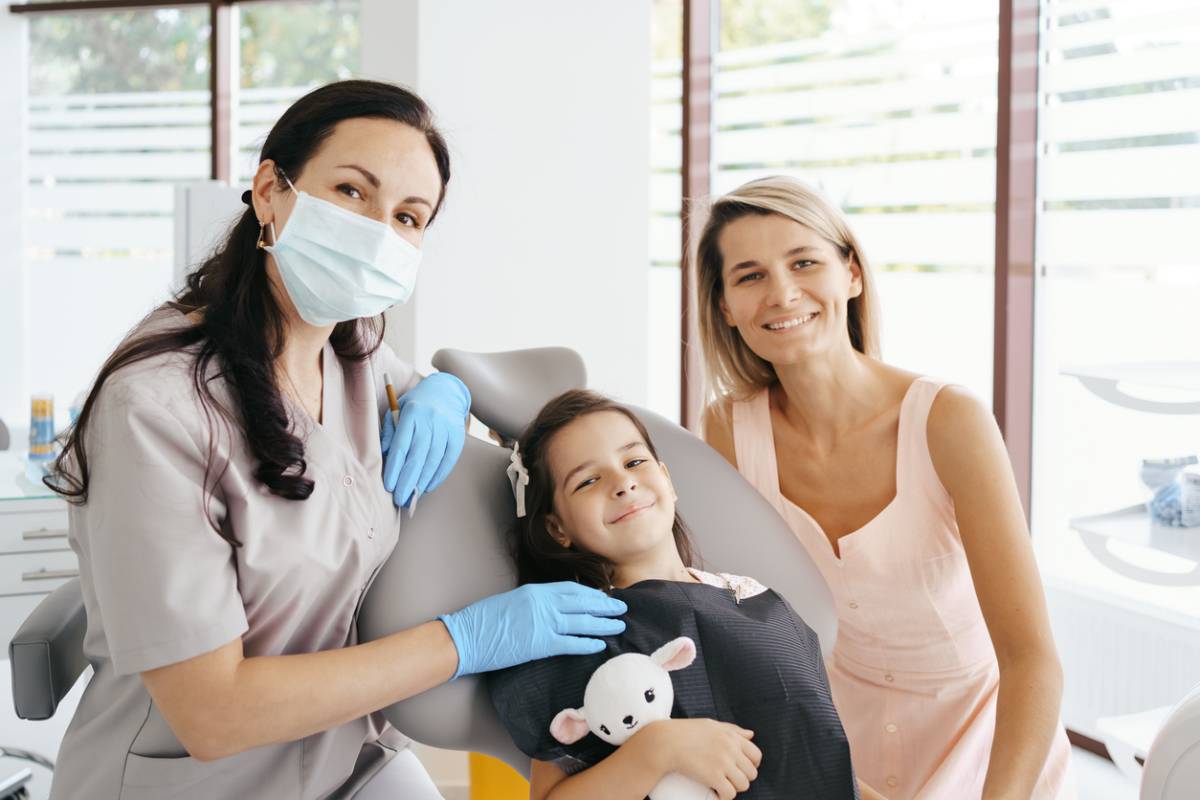Your child’s first dentist visit can be intimidating. But there are ways to make it comfortable and convenient for all parties involved.
One of the most important factors in our overall health involves dental health. In fact, poor dental health has been linked to chronic diseases, such as diabetes, heart disease, and even strokes. Starting early is one of the best indicators of dental health outcomes. This has been proven by research as children who have poor dental health often have poor dental health as adults. This can lead to things like cavities, gum disease, and tooth loss. Bringing your child to their first dentist visit can be a great experience. Below you will find information on how to prepare your child for their first dentist visit.
Your Child’s First Dentist Visit
Dentists recommend that your child be seen by a dentist by their first birthday or within six months of their first tooth coming in. The benefit of starting children early when it comes to the dentist is that they are prepared and don’t have time to fear the dentist. Many young children have a lot of feelings associated with the dentist, including anxiety and worry.
The good thing about the first dental visit is that it involves little actual treatment. Depending on your dentist, you may be able to sit with your child, or you may be asked to stay in the waiting room. The pediatric dentist will examine your child’s teeth for decay, look at their bite, and see if there are any issues with their gums or jaw. The dentist will then clean your child’s teeth and determine whether or not fluoride is needed.
Your Child’s First Dentist Visit and Your Experience
Once the dentist has finished examining your child’s mouth they will want to talk to you about several things to ensure your child’s dental health is in top shape. Below are the following topics your child’s dentist may want to discuss.
Oral Hygiene Routine:
Because your child is so young, they will have a different routine than you and the rest of the family. The dentist will focus on what’s right for your child’s age group and their unique needs, including ways to prevent cavities and keeping their teeth and gums healthy.
Oral Habits:
Certain habits like thumb sucking, tongue thrusting, and lip sucking can negatively impact the development of your child’s teeth and gums. They can also cause other issues, such as skin irritation. Your dentist will also ask about how they are getting food and whether it’s through breastfeeding, a bottle, or something else. Lastly, your dentist will want to monitor the use of binky’s as these can all impact their teeth and speech development.
Fluoride Needs:
While it is well-known that too much fluoride during childhood can be harmful, there are some cases where it’s necessary, and your child’s dentist will discuss this with you.
Developmental Milestones and Nutrition:
These are relevant to your child’s dental health and must be carefully monitored. Poor dental health can impact your child’s developmental milestones when it comes to speech. So it’s important to stay on top of it. Proper nutrition can help strengthen your child’s body and their oral health. So ensuring they have a balanced diet rich in nutrients is vital.
Follow-up Appointments:
Set up the appointment before you leave the dentist’s office. This way, you will be more likely to stay on schedule with your child’s visits. Most dentists like to see patients every six months, but sooner if your child has any unique dental issues.
Finding the right pediatric dentist is key for your child’s oral health. As the best pediatric dentists Chino Hills has, we provide kids with great experiences and are skilled at addressing the unique needs of children.
Dentist Chino Hills
If your child has not had their first dental appointment yet, contact the dentists at Dental Care of Chino Hills. The pediatric dentists are skilled at meeting your child’s needs, and you can trust their services. Contact the office today for an appointment!

